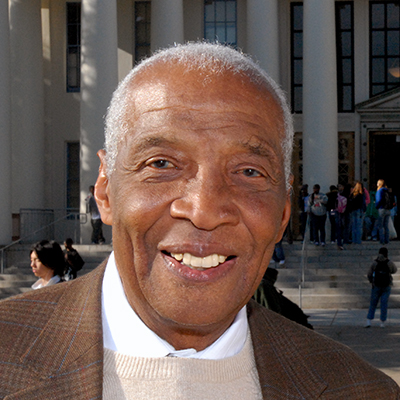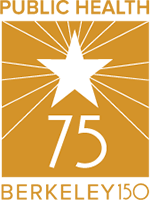
Carl N. Lester MPH ’65 has had a 50-year public health career that includes managing public hospitals and health agencies. He was the Director, Alameda County Health Care Services Agency. Under his leadership, Alameda County begin changing its public health clinics to comprehensive primary care centers and started funding and integrating community clinics into the county’s outpatient service network. He developed culturally relevant environmental justice and health career educational strategies and programs for at-risk youth. In 2005, he established the Center for Health Career Development at the Alameda County Medical Center, to help at-risk youth get into colligate health and biotechnology programs. He had gubernatorial appointments to serve on state medical and health advisory boards.
On public health and the challenges we face
Public health programs and initiatives are essential to the vitality, social, economic prosperity, health, international influence, and the overall well-being being of a country. They have led to increased life expectancies, the eradication or reduction of many communicable diseases, and the worldwide reduction in infant and child mortality. Other significant challenges that public health have address included, among others, AIDS/HIV, tuberculosis and malaria, recognition of tobacco as a major health problem, Severe Acute Respiratory Syndrome (SARS), immunizations and control of infectious diseases, fluoridation of drinking water, safer, and healthier foods, and work-related health problems, and clean air and water.
I believe that some of major public health challenges that should be address on a global health basis include: health inequity and disparity issues (old problems not yet solved), protecting health from climatic change, and the growing problem of environmental pollution (air, water, land).
“Berkeley moment”
In 1965, when I started at the School of Public Health, historical changes were happening in the nation’s health care system. Strategies for implementing Medicare and Medicaid were being debated and formulated by Congress and the states. In California, the key issue was what state department would be best suited/positioned to administer the state’s Medicaid program, the Department of Public Health, Department of Social Services, or should a new agency be established to administer the program. My mentor, Dr. Alfred Childs, ensured that I was well-grounded in the law, funding issues, and the significant implementation concerns. He guided my attendance at key public hearings and debates. This educational experience greatly enhanced and broaden my public health employment opportunities.














